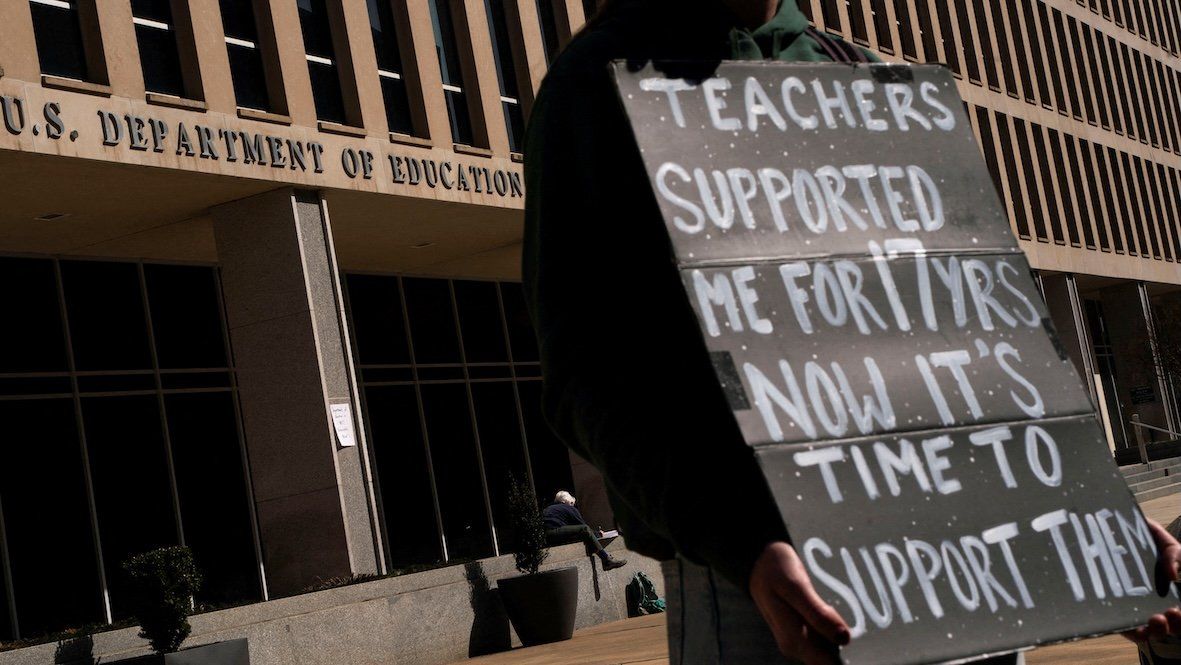The US Department of Education, which Donald Trump has sought to dismantle, is laying off roughly half of its 4,100-strong workforce. Education Secretary Linda McMahoncouched the layoffs in terms of “efficiency,” “accountability,” and deploying resources to serve “students, parents, and teachers.” Critics say otherwise, arguing that cuts are part of a long Republican battle to eliminate federal involvement in education, including its mandate to enforce civil rights protections in schools, and leave the matter to state and local governments – or to private schools and families themselves through homeschooling.
A majority of Americans oppose shuttering the department – and a mere 26% support it. Closing the agency requires an act of Congress, but the Trump administration has the power to limit its resources and, thus, its capacity to operate. The White House, including its Department of Government Efficiency, is already at work doing just that, including freezing nearly a billion dollars in spending last February.
The National Education Association warns that losing the department or gutting its funding will harm low-income communities that rely on it for support while undermining civil rights protections for race, gender, and disability. They warn that 180,000 teaching jobs could go and billions in federal funding, a loss that would hit poor and disabled students particularly hard. Student loans could also be at risk, making college accessibility even tougher than it already is. Cuts will also put national education performance assessments at risk, worrying some that education standards will fall.
On Thursday, 21 Democratic attorneys general sued the Trump administration in response to the layoffs, arguing that they were “illegal and unconstitutional.”
